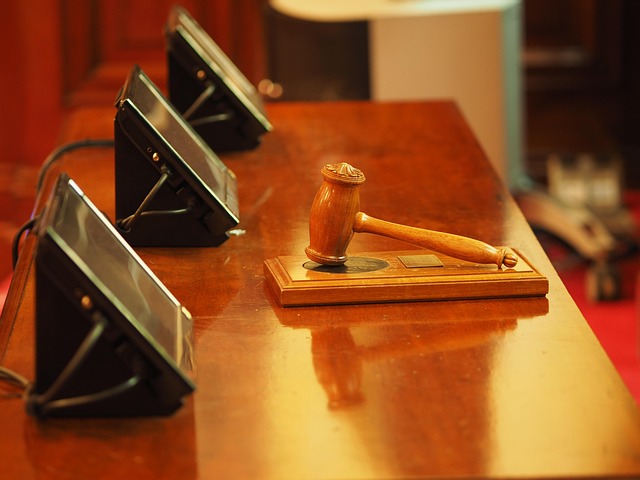Public corruption cases carry severe penalties, requiring meticulous legal strategies. Accusing officials demands careful navigation, avoiding pitfalls like circumstantial evidence and uncorroborated tips. Instead, concrete proof through documented transactions is crucial. Courts need clear links between intentions and actions to avoid baseless claims. Facing charges? Stay calm, gather info, and seek immediate legal counsel – a specialized attorney is vital for navigating complexities, protecting rights, and building a robust defense.
“Uncovering the intricate web of public corruption charges is essential for anyone navigating legal implications in governance. This article offers a comprehensive guide, breaking down complex topics into manageable sections. We explore ‘Understanding Public Corruption Charges’ and their definitions, delving into the ‘Legal Implications’ for all involved. Furthermore, we highlight ‘Common Mistakes’ often made when accusing public officials, providing insights to avoid pitfalls similar to those in ‘Personal Injury Claims’. Lastly, learn about the legal process post-charges, offering a clear path through ‘Navigating the Legal Process’.”
- Understanding Public Corruption Charges: Definitions and Legal Implications
- Common Mistakes in Accusing Public Officials: A Pitfall to Avoid
- Navigating the Legal Process: Steps After Being Charged with Public Corruption
Understanding Public Corruption Charges: Definitions and Legal Implications

Public Corruption Charges: Unraveling the Complexities
Understanding public corruption charges is essential, as they carry significant legal implications for those involved. At its core, public corruption refers to the abuse of power or position by individuals in authority for personal gain. This can manifest in various forms, including bribery, fraud, and illegal influence peddling. When an individual or entity is accused of these offenses, it’s crucial to grasp the definitions and legal frameworks at play. Common mistakes in personal injury claims, while unrelated, highlight the importance of precision and understanding the nuances in legal proceedings—a lesson that applies equally to public corruption cases.
The legal implications are vast, as these charges can lead to severe penalties, including imprisonment, fines, and damage to one’s reputation. Across the country, jury trials for such cases have become more common, with citizens playing a vital role in upholding the integrity of their respective businesses and governance systems. Navigating these complex charges requires meticulous legal strategy, ensuring that the rights of all parties are protected while holding accountable those who engage in corrupt practices.
Common Mistakes in Accusing Public Officials: A Pitfall to Avoid

When accusing public officials of corruption, it’s imperative to avoid common pitfalls that can weaken cases and lead to unfavourable outcomes. One major mistake is relying solely on circumstantial evidence or uncorroborated tips, which can be easily discredited in court. Public corruption charges often revolve around complex financial transactions and intricate schemes; thus, concrete proof is crucial. Accusers should meticulously document every step of their case, ensuring that each piece of evidence is properly attributed and sourced to avoid any confusion or misinterpretation.
Another blunder to steer clear of is focusing solely on the public official’s perceived motive without solid supporting facts. While understanding the official’s intentions is essential, courts require concrete links between these motives and specific illegal actions. Accusers must navigate a fine line, presenting evidence that reveals unethical behaviour while maintaining a strict adherence to legal boundaries to achieve extraordinary results and avoid indictment for baseless or poorly constructed personal injury claims.
Navigating the Legal Process: Steps After Being Charged with Public Corruption

When facing public corruption charges, understanding the legal process is crucial for navigating a complex system. After being charged, the first step is to remain calm and gather all relevant information. This includes reviewing the official complaint or indictment, which outlines the specific allegations and potential penalties. Many individuals make the common mistake of panicking or ignoring the charges, but seeking immediate legal counsel is essential. Engaging an experienced general criminal defense attorney who specializes in public corruption cases across the country can significantly impact the outcome.
The lawyer will guide you through each stage, ensuring your rights are protected. They’ll help you understand the evidence against you and begin building a robust defense strategy. Common tactics include challenging the admissibility of evidence, questioning witness credibility, and exploring potential legal loopholes or procedural errors. Remember, staying silent is often not in your favor; an attorney can ensure your statements are strategic and protect you from making mistakes that could hamper your case.
Public corruption charges are serious matters that require a deep understanding of legal processes and rights. By avoiding common pitfalls, such as those often seen in personal injury claims, individuals faced with these charges can better navigate the legal system. Remember, each step after being charged is crucial, from seeking competent legal counsel to staying informed about procedural requirements. With the right approach, it’s possible to defend against these allegations and protect one’s reputation.






